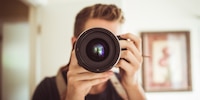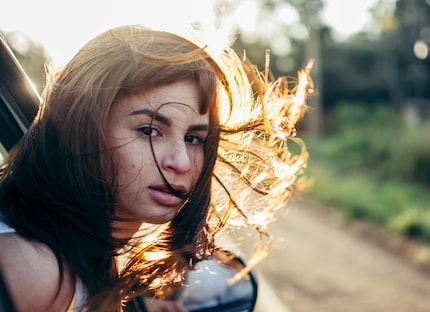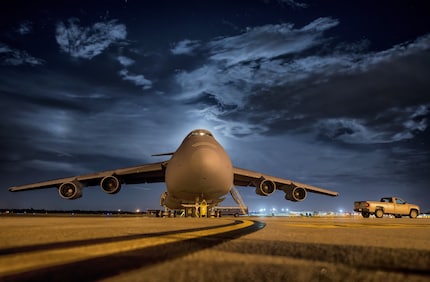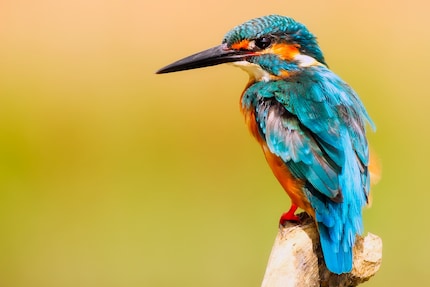
Guide
Lens nomenclature – how to navigate the abbreviation jungle
by David Lee

This guide gives you answers to the most common questions about camera lenses. Should I’ve forgotten an important questions, please let me know by commenting below.
Are you one of those people who buy a camera with interchangeable lenses but only ever use the same lens? You’re missing out big time! Changing the lens opens up a whole world of new possibilities in photography. However, you might just be unsure which kind of lens you need or want. To help you out, I’ve put together some useful background information in this guide on camera lenses.
It depends.
Yes, either one from Canon or a third-party provider (such as Samyang, Sigma, Tamron, Tokina etc.) that offers lenses that are fitted to Canon systems. Lenses from other camera manufacturers (such as Nikon, Sony etc.) won’t fit. This applies to all other brands with one exception: Panasonic and Olympus products are compatible. Although there are adapters that make it possible to use a camera and a lens from two different brands, they often don’t transfer all electronic information, which leaves you having to operate the lens manually.
I’m afraid it’s not that simple. Lenses that are made for small photo sensors can’t be used with cameras hat have a large sensor. Again, this is the same for all brands. The below article goes into more detail on this and shows you how to see from the name of the lens which sensor size it goes with.
They refer to the focal length. The number in millimetres defines the image section; with zoom lenses, there are two numbers (minimum and maximum). The fraction number (f/4 or 1:4 for instance) refers to the speed. More information on this can also be found in the article about lens nomenclature that I’ve added above.
There are several reasons for this:
Prime lenses are mostly very fast and are available at rather reasonable prices.

These kinds of pictures can only be taken with a high-speed lens. For this photo, the aperture was f/1,8.
Absolutely.
Most of these very specific questions are easy to answer if you ask yourself the following:

Photo taken with wide-angle lens

Photo taken with normal lens

Photo taken with telephoto lens
When it comes to telephoto lenses, I’d say yes. Lenses age much slower than cameras and especially good lenses can be resold at a good price even if they’re a few years old. As a rule, I’d say if you go for quality, it will last. But then again, you need to have a range of lenses first before you can test out the possibilities of photography. Once you’ve found out which areas of photography you’re most interested in (telephoto for example), you can still invest in better equipment for this specific purpose. In addition, many reasonably priced lenses deliver excellent image quality (prime lenses in particular), the only difference being that they’re less robust than professional equipment. However, you might not even need that.
When it comes to telephoto lenses, I absolutely recommend it, as these shots can easily blur. For all other lenses, image stabilisation is nice to have, but not necessary.
The closest focusing distance, the shortest distance that the lens can still focus at, is different for every lens. Telephoto lenses can still focus sharply at much closer distances than normal lenses. How large your subject can be also depends on the focal length. There are many telephoto lenses with varying focal lengths.
If you can only take one lens with you, you might want to have a look at superzoom lenses. They cover the full range of focal lengths. However, they don’t have a high speed and many lenses with a large zoom range only deliver moderate image quality. A default fixed focal length is a good addition; Canon’s 50 mm, for instance, isn’t expensive, weighs 160 g and is only 4 cm long. A no-brainer.
This «strange hood» is a lens shade. It’s often included in the scope of delivery of a camera, but not always. What it does is avoid light reflection that could occur because of the glass construction of the lens. In addition, it improves the contrast and keeps raindrops from falling onto your lens. To cut a long story short: Yes, you do need one of these. Just make sure to get one that fits your lens exactly.
Only if you’re planning to use filters. Read more about filters here:
With cameras, autofocus is designed to capture pictures and can only be used to a limited extent to record videos. This is especially true for single-lens reflex cameras, where autofocus doesn’t work anywhere as well in video mode as it does in photo mode, resulting in the image changing between semi-focussed and totally blurry. Therefore, it’s important to have a lens that offers easy manual focus adjusting. The more the focus ring can be rotated, the easier it is to focus precisely.
If you’re really ambitious, you might want to look into lenses that have been optimised specifically for video purposes, as for example the Samyang Xeen series. With these lenses, it’s not only easy to set the focus manually, but they also have a manual, continuous aperture ring that allows you to adjust the depth of field. And they come in standardised sizes, so you don’t need to rebuild everything to change the lens (with professional video recording, the lens is often built into a frame).
No. You'd know if you did.
Choose a lens that you’re interested in and have a look at the specifications in our shop. Many entries are followed by an «i» in italics. Hover your mouse over it and you’ll find a description of this specification.
My interest in IT and writing landed me in tech journalism early on (2000). I want to know how we can use technology without being used. Outside of the office, I’m a keen musician who makes up for lacking talent with excessive enthusiasm.
Practical solutions for everyday problems with technology, household hacks and much more.
Show all